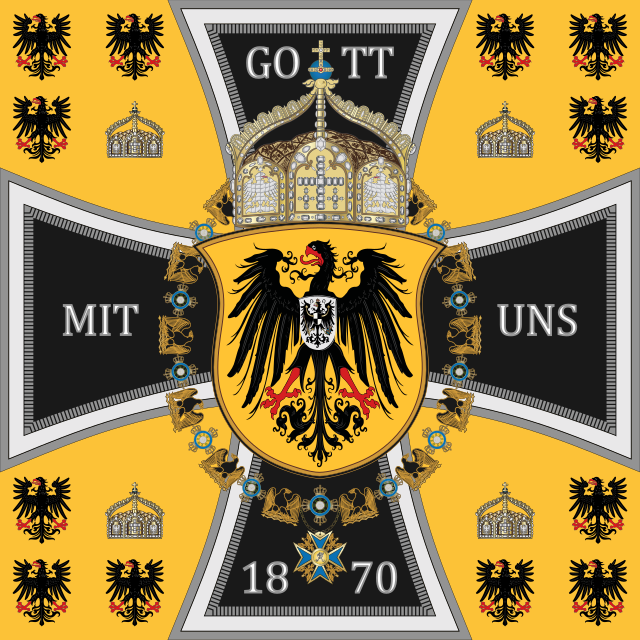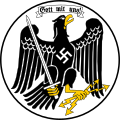主與我們同在(德語:Gott Mit Uns!;俄語:Съ нами Богъ!;拉丁語:Nobiscum Deus!)是一個源自於聖經的國家格言,在歷史上被普魯士王國、俄羅斯帝國、以及第二與第三德意志帝國使用。
此條目沒有列出任何參考或來源。 (2017年8月8日) |


來源
《聖經·新約·馬太福音》引述《舊約·以賽亞書》7:14 先知解釋「以馬內利」(עמנואל)的意思,就是「主與我們同在」。原文如下:
古希臘語:ἰδοὺ ἡ παρθένος ἐν γαστρὶ ἔξει καὶ τέξεται υἱόν, καὶ καλέσουσι τὸ ὄνομα αὐτοῦ Εμμανουήλ, ὅ ἐστι μεθερμηνευόμενον μεθ᾽ ἡμῶν ὁ θεός.
——Matthew 1:23, Westcott and Hort
Behold, a virgin shall be with child, and shall bring forth a son, and they shall call his name Emmanuel, which being interpreted is, God with us.
德語:"Siehe, eine Jungfrau wird schwanger sein und einen Sohn gebären, und sie werden seinen Namen Immanuel heißen", das ist verdolmetscht: Gott mit uns.
——Matthew 1:23, 路德聖經
他將要生一個兒子.你要給他起名叫耶穌。因他要將自己的百姓從罪惡里救出來。這一切的事成就、是要應驗主借先知所說的話;說「必有童女、懷孕生子、人要稱他的名為以馬內利。」以馬內利翻出來、就是:神與我們同在。
後來沙俄及德國也使用這個格言,象徵神是皇帝,可能令人聯想起,帝國及納粹,使用時間非常久遠
統治者們通過這句格言收攏人心,鼓舞士氣,使他們按照統治者的意願參加戰鬥並取得勝利,並以此壯大國家。
使用
這個格言常見於鐵十字勳章及部分勳章。
參見
Wikiwand in your browser!
Seamless Wikipedia browsing. On steroids.
Every time you click a link to Wikipedia, Wiktionary or Wikiquote in your browser's search results, it will show the modern Wikiwand interface.
Wikiwand extension is a five stars, simple, with minimum permission required to keep your browsing private, safe and transparent.






